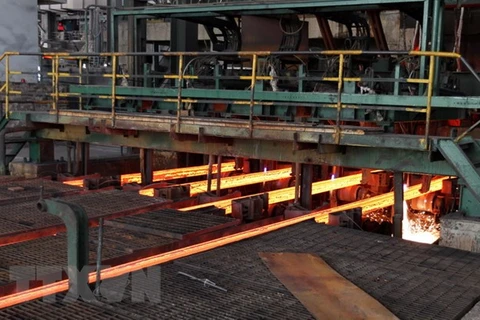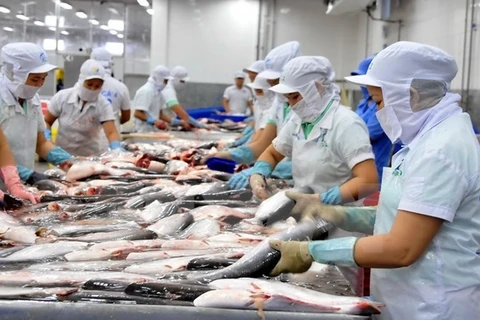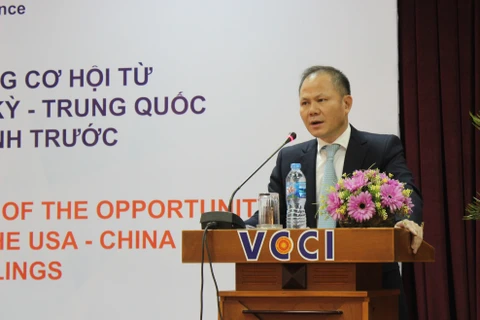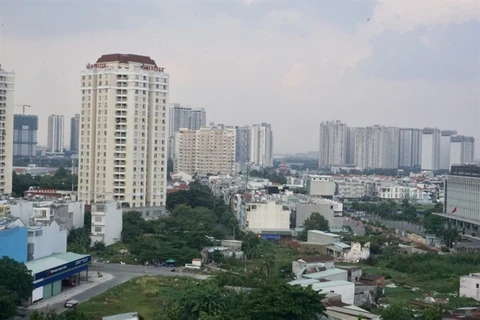 A panel discusses the ramifications of the US-China trade war at a conference on “US–China Trade War: Opportunities and Challenges for Vietnamese Enterprises”. (Photo: VNA)
A panel discusses the ramifications of the US-China trade war at a conference on “US–China Trade War: Opportunities and Challenges for Vietnamese Enterprises”. (Photo: VNA) HCM City (VNS/VNA) - Vietnam should take advantage of the opportunities offered by the US-China trade war but also be aware of the negative consequences, experts said at a meeting in HCM City on December 13.
Truong Dinh Tuyen, former Minister of Trade, said the trade dispute between two of Vietnam’s top trading partners would have both a positive and negative impact on the country.
The trade war could have serious consequences, including a disruption to the global supply chain, an increase in prices, and a drop in FDI worldwide.
A decrease in American imports from China could present a good opportunity for Vietnam to fill in the gap, experts said.
A recent report from the American Chamber of Commerce (AmCham) in Vietnam found that Vietnam is becoming more attractive to investors.
Up to 36 percent of surveyed US companies said they wanted to expand their business in the country, compared to 21 percent in Thailand and 19 percent in Malaysia.
In April, the US announced a 25 percent tariff on 50 billion USD of Chinese goods. More than 800 Chinese exports, worth about 34 billion USD, were subject to tariffs starting on July 6, according to Tuyen.
At the same time, China also introduced countermeasures of the same scale by imposing its own 25 percent tariff on 545 categories of US products worth 34 billion USD from the same day.
Don Lam, CEO of VinaCapital, told Vietnam News during a recent interview that the US-China trade war in the short term could bring benefits to Vietnam, especially in investment.
Because of the trade war and rising wages and costs in China, some investors in China are moving their business to other Asian countries such as Vietnam, Thailand and Malaysia.
Vietnam has shown an improving business environment and is attracting more investors, Lam said.
However, if the US imposes broader tariffs on China, it would affect the cross-border supply chain, including Vietnamese supplies used in many Chinese exports.
To minimise the risks arising from trade disputes, Vietnam should focus on expanding its access to other markets.
The country is already a signatory of many free trade agreements, with two more major trade pacts coming in effect in the near future, the Comprehensive Progressive Trans-Pacific Partnership and the EU-Vietnam free trade agreement.
These FTAs will give Vietnam an opportunity to increase exports to alternative markets.
However, the nation suffers from underdeveloped supply chains, a heavy reliance on imports of raw materials and a lack of supporting industries, Lam said.
The country should focus on overcoming these challenges to survive the trade war, and fully realise the benefits of the upcoming FTAs, he added.
In January, China became Vietnam’s largest export market with total export turnover of 3.708 billion USD, a 106 percent year-on-year increase, according to the General Department of Vietnam Customs.
One of Vietnam’s key export items to China are electronic components which China uses to make products to export to the US. So, if the demand for Chinese products falls, Vietnam will suffer too, experts said.-VNS/VNA
VNA
























